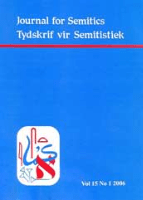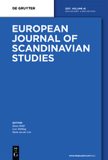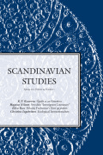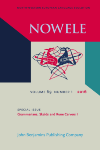
Skandinavskaya Filologiya
metrics 2024
Cultivating Scholarly Discourse on Scandinavian Cultures.
Introduction
Skandinavskaya Filologiya is a distinguished academic journal published by St Petersburg University Press that specializes in Scandinavian philology and linguistics. With its ISSN 0202-2397 and E-ISSN 2618-9518, this journal serves as a vital platform for scholarly articles that explore the intricate languages, literature, and cultural nuances of the Scandinavian region. The journal seeks to promote interdisciplinary research and foster collaboration among linguists, literary scholars, and cultural researchers interested in the rich heritage and contemporary developments within Scandinavian studies. Although the journal operates without open access, it is committed to enhancing academic discourse and providing a valuable resource for students, professionals, and researchers. Located in the vibrant city of St Petersburg, Russia, the journal aims to bridge the gap between Eastern and Western scholarship in Scandinavian philology, making it a significant contributor to the field.
Metrics 2024
 -
- 0.10
0.10 0.10
0.10 -
-Metrics History
Rank 2024
JCI (Web Of Science)
Quartile History
Similar Journals

Journal for Semitics
Unveiling New Perspectives on Semitic Literature and LinguisticsJournal for Semitics
Published by UNISA PRESS, the Journal for Semitics is a pivotal platform dedicated to the interdisciplinary study of Semitic languages, literature, and cultures. With its ISSN 1013-8471, this journal provides a comprehensive forum for scholars to disseminate original research, critical reviews, and theoretical discussions that enrich our understanding of Semitic studies in a global context. Although the journal does not currently offer Open Access options, its meticulous peer-review process ensures high-quality scholarship that resonates with academic standards in the field. Flanked by a notable commitment to cultural and linguistic diversity, the Journal for Semitics is essential for researchers, professionals, and students striving to expand their knowledge and engage actively in contemporary Semitic scholarship. Located in Pretoria, South Africa, this journal encapsulates a rich academic tradition while aiming to shape future discourse in Semitic studies.

European Journal of Scandinavian Studies
Fostering critical dialogues in Scandinavian cultural studies.European Journal of Scandinavian Studies is an esteemed journal published by Walter de Gruyter GmbH, dedicated to advancing scholarship in the fields of Cultural Studies, Linguistics and Language, and Literature and Literary Theory. Since its inception in 2010, the journal has been a pivotal platform for researchers and scholars, showcasing cutting-edge research and critical discussions pertaining to Scandinavian languages and cultures. With an ISSN of 2191-9399 and an E-ISSN of 2191-9402, the journal emphasizes accessibility to impactful academic work, despite its current non-open access model. While the journal is categorized within the Q4 quartile for Cultural Studies and Linguistics/Language, it has shown notable potential in ranking higher in its specialized domains, fostering a growing community of researchers invested in Scandinavian studies. The journal's office is located in Berlin, Germany, further enriching its European scholarly context. As it continues to evolve, the European Journal of Scandinavian Studies serves as a vital resource for academics seeking to engage deeply with the multifaceted aspects of Scandinavian culture and linguistics.

Nueva Revista Filologia Hispanica
Elevating Hispanic Philology to New HeightsNueva Revista Filologia Hispánica, published by COLEGIO MEXICO, A C, DEPT PUBLICACIONES, has been a pivotal resource in the field of Hispanic philology since its establishment in 1966, transitioning to an open-access model that enhances the accessibility of scholarly works in the area. With an ISSN of 0185-0121 and an E-ISSN of 2448-6558, the journal is housed in Mexico City and aims to publish innovative research that contributes to the understanding of the linguistic and cultural dynamics of the Spanish language. It consistently ranks in the Q3 category of Linguistics and Language for 2023, reflecting its commitment to academic excellence as demonstrated by its Scopus ranking in both Arts and Humanities and Social Sciences. With converged years from 2011 to 2024, the journal encourages contributions that inspire further discourse among researchers, professionals, and students, thus solidifying its importance as a scholarly platform in the linguistics landscape.

Nordisk Judaistik-Scandinavian Jewish Studies
Fostering Interdisciplinary Insights into Scandinavian Jewish LifeNordisk Judaistik-Scandinavian Jewish Studies is a distinguished academic journal dedicated to the exploration of Jewish culture, history, and religious practices in the Scandinavian context. Published by the DONNER INSTITUTE FOR RESEARCH ON RELIGIOUS AND CULTURAL HISTORY in Finland, this journal has been an open access platform since 2016, allowing easy dissemination of knowledge and fostering scholarly communication among researchers, educators, and students. With a variety of subjects encompassing Anthropology, Cultural Studies, History, and Religious Studies, the journal has achieved commendable recognition, with its latest rankings placing it in Q2 in several categories according to the 2023 Scopus rankings. The journal's significant contribution to the field is evident through its impact, evidenced by its strategic position within its respective quartiles. By bridging interdisciplinary methodologies and Jewish studies within a Scandinavian framework, Nordisk Judaistik serves as an essential resource for those engaged in the complexities and nuances of Jewish heritage and identity in the region.

Sibirskii Filologicheskii Zhurnal
Advancing the Frontiers of Linguistics and LiteratureSibirskii Filologicheskii Zhurnal is a prestigious academic journal published by the Russian Academy of Sciences, Institute of Cytology and Genetics. With ISSN 1813-7083, it is dedicated to advancing research in the fields of Cultural Studies, Linguistics and Language, and Literature and Literary Theory, and has achieved notable rankings, including Q2 in Cultural Studies and Linguistics, and Q1 in Literature for 2023. The journal provides a platform for scholarly discourse, contributing valuable insights to its fields with an evolving scope that spans from 2018 to 2024. Though not an open-access journal, Sibirskii Filologicheskii Zhurnal serves as a vital resource for researchers, professionals, and students in the Russian Federation and beyond, fostering a deeper understanding of linguistic and literary phenomena. Its commitment to high-quality content makes it an essential addition to any academic's library.

Academic Journal of Modern Philology
Unveiling the Rich Tapestry of Language and CultureWelcome to the Academic Journal of Modern Philology, a premier platform dedicated to advancing the field of philology and linguistics. Published by the esteemed Committee Philology Polish Academy of Sciences, Wroclaw Branch, this open-access journal has been committed to disseminating high-quality research since 2014, ensuring widespread access and engagement within the scholarly community. With an ISSN of 2299-7164 and an E-ISSN of 2353-3218, the journal invites contributions that push the boundaries of contemporary philological inquiry, bridging traditional scholarship with modern linguistic challenges. Situated in Poland's vibrant academic milieu, it aims to foster interdisciplinary dialogue while highlighting the importance of philology in understanding cultural and linguistic diversity. Researchers, professionals, and students alike will find a wealth of insightful articles that contribute to the evolving landscape of modern language studies.

SCANDINAVIAN STUDIES
Unveiling the Rich Tapestry of Scandinavian StudiesSCANDINAVIAN STUDIES is a prestigious journal dedicated to advancing the understanding of Scandinavian languages, literature, and culture. Published by the Society for the Advancement of Scandinavian Studies in the United States, this journal has been a key resource for scholars since its inception in 1974, covering a breadth of topics in both Linguistics and Literary Theory. With an impactful presence within academic circles, it has achieved a notable ranking in the Q2 category for Literature and Literary Theory, and Q3 for Linguistics and Language, ensuring its relevance among leading journals in the humanities. The journal is indexed in reputable databases, including Scopus, where it ranks in the 65th percentile for literature studies. Although it is not open access, SCANDINAVIAN STUDIES provides critical insights and scholarly contributions that greatly enhance discourse in Scandinavian studies. Researchers, professionals, and students alike will find this journal a valuable tool for deepening their understanding of the rich tapestry of Scandinavian contributions to world culture.

NOWELE-North-Western European Language Evolution
Connecting Scholars Through Language ResearchNOWELE-North-Western European Language Evolution, published by John Benjamins Publishing Co, serves as a vital platform for researchers and scholars interested in the evolution and dynamics of North-Western European languages. With an ISSN of 0108-8416 and an E-ISSN of 2212-9715, this journal has been contributing to the field of linguistics since its inception in 1983, with ongoing publications until 2024. Indexed in Scopus and classified in the Q3 category for Linguistics and Language, NOWELE is recognized for its rigorous academic standards and diverse contributions, ranking #485 out of 1088 in the Arts and Humanities category, and #566 out of 1167 in Social Sciences. The journal fosters an open dialogue within the linguistic community, presenting innovative research findings and theoretical advancements. Researchers, professionals, and students alike benefit from its systematic exploration of language evolution in the context of a rapidly changing global linguistic landscape.

Vestnik Sankt-Peterburgskogo Universiteta-Yazyk i Literatura
Pioneering Research in the Heart of Linguistics and LiteratureVestnik Sankt-Peterburgskogo Universiteta-Yazyk i Literatura, published by ST PETERSBURG UNIV PRESS, stands as a pivotal academic journal in the fields of linguistics and literature, reflecting a profound commitment to the exploration of language and literary theory. With an ISSN of 2541-9358, this journal has steadily built its reputation since its inception in 2017, achieving impressive rankings in Scopus that place it within the top tiers of its categories—Q2 in Linguistics and Language and Q1 in Literature and Literary Theory as of 2023. The journal serves as an essential platform for researchers, professionals, and students who are keen to delve into the complex interactions between language and literature. Although currently not offering Open Access, its contributions are invaluable to advancing scholarly dialogue and fostering understanding within these vibrant fields. With a converged publication timeline extending through 2024, Vestnik Sankt-Peterburgskogo Universiteta-Yazyk i Literatura exemplifies the ongoing commitment to high-quality research and critical thought, making it an indispensable resource for those dedicated to the study of language and its literary manifestations.

Minerva-Revista de Filologia Clasica
Bridging the past and present through scholarly exchange.Minerva-Revista de Filologia Clasica, an esteemed academic journal published by the Universidad de Valladolid, is a pivotal resource in the fields of Classics, Linguistics, and Literature. With its ISSN 0213-9634 and E-ISSN 2530-6480, this journal has been championing open access since 2017, making high-quality research accessible to a global audience. Based in Valladolid, Spain, Minerva is dedicated to the exploration and dissemination of scholarly work related to classical philology, offering a platform for the exchange of ideas among researchers, educators, and students alike. Recognized in the 2023 category quartiles as Q3 in Classics and Q4 in Linguistics and Language, this journal provides valuable insights and contributes significantly to its fields, allowing authors and readers to engage with important discussions and innovative perspectives. As the academic landscape evolves, Minerva continues to adapt, fostering a vibrant community committed to the advancement of knowledge in antiquity and its linguistic dimensions.